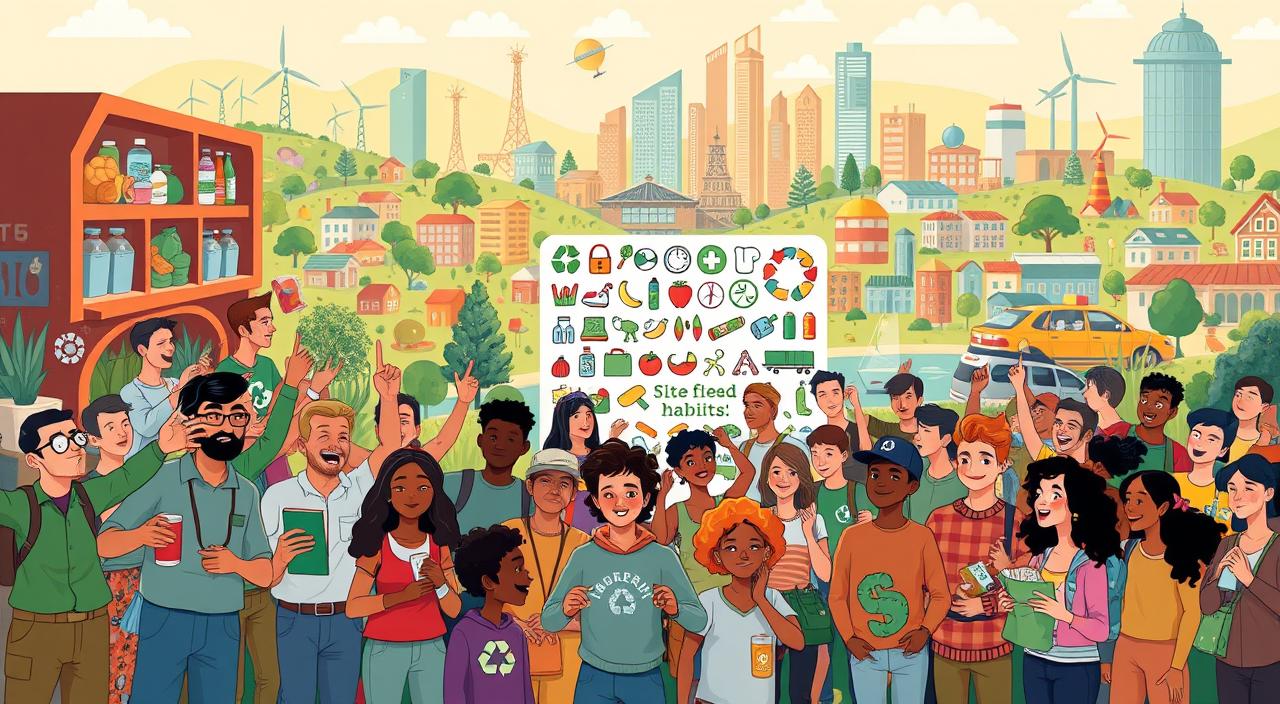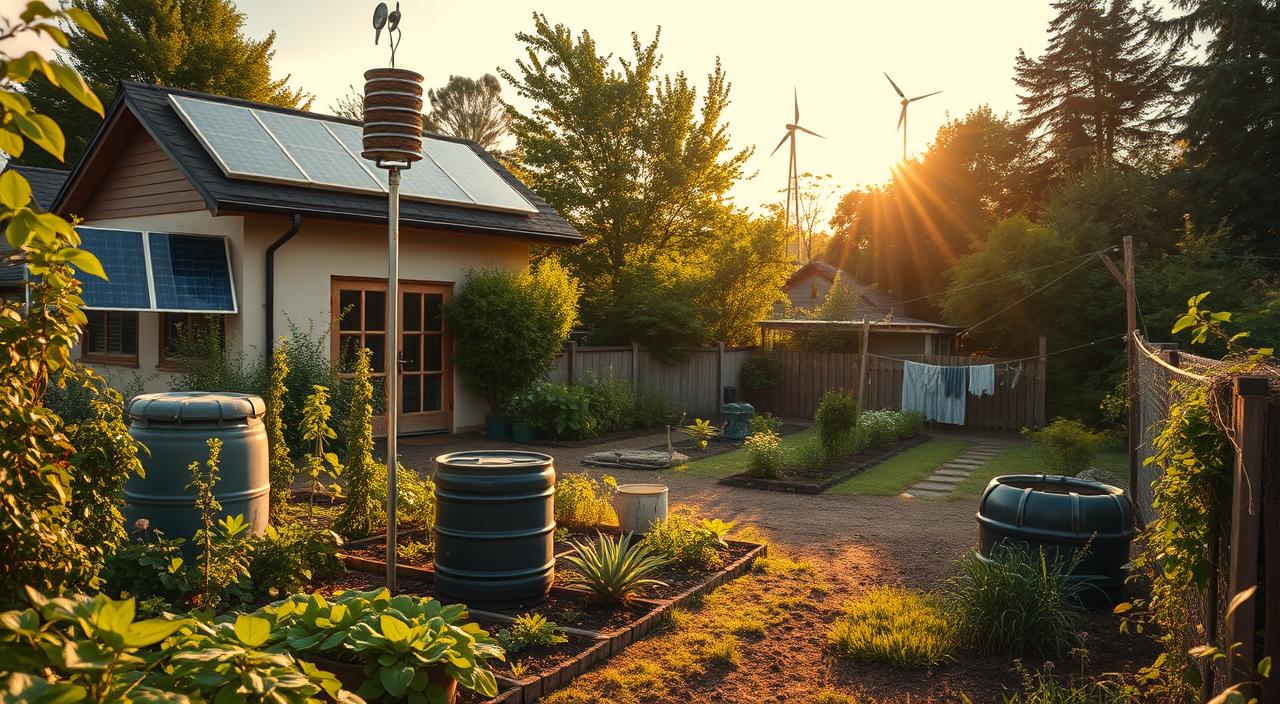Living in the UK today means facing overflowing bins, rising council collection costs, and mounting concerns about landfill waste. But what if you could halve your rubbish in just 30 days—without drastic lifestyle overhauls?
As Sir David Attenborough urges us to “stop waste of any kind,” research from WWF shows that small daily actions can lead to measurable environmental recovery. This guide explores micro-habits—tiny, repeatable behaviours that anyone can adopt to cut landfill contributions, lower bills, and protect ecosystems.

By focusing on food preservation, energy choices, and plastic alternatives, you’ll learn how to transform your daily routines into powerful eco-actions. Each step is practical, low-effort, and designed for busy UK households.
What if you could halve your rubbish in just 30 days—without drastic lifestyle changes?
Key Takeaways
- Small daily changes can cut household rubbish by up to 50% within 30 days.
- WWF-approved methods require minimal effort yet deliver real results.
- Simple waste audits help track progress and build accountability.
- Focus areas: food storage, plastic swaps, energy habits, and mindful shopping.
- Designed to align with UK council recycling systems and waste policies.
Understanding the Household Waste Challenge
Every item you throw away has consequences far beyond your kitchen bin. Wildlife populations have dropped by 73% since 1970, much of it driven by overconsumption and waste. A single plastic wrapper can take centuries to degrade, while wasted food contributes to methane emissions that intensify climate change.
Globally, one-third of food produced never gets eaten. In the UK alone, households discard around 6.6 million tonnes of food every year, even though much of it could have been preserved or reused.
This isn’t about guilt—it’s about recognising the hidden connections and taking small, empowering steps that create change.
Step One: Knowing What You’re Wasting
Before you can halve your rubbish, you need to understand what’s filling your bin. A waste audit helps identify the biggest culprits.
How to Conduct a Personal Waste Audit
- Track for 7 days – Write down everything you throw away.
- Sort into categories – Food scraps, recyclables, general waste.
- Look for patterns – Are you binning wilted vegetables, takeaway containers, or mis-sorted recycling?
Typical findings for UK households:
- Food waste (40%) – often fresh produce gone bad.
- Single-use plastics (25%) – takeaway packaging, bottles, wrappers.
- Recyclables in black bags (15%) – missed opportunities to recycle.
Digital Tools to Help
- WWF Footprint Calculator – measures your environmental impact.
- My Footprint App – tracks weekly waste and carbon savings.
Case study: A Bristol family halved their rubbish in just 22 days by meal-planning and adjusting supermarket visits.
Proven Tips to Reduce Household Rubbish

Once you know your baseline, it’s time to apply targeted strategies.
1. Smarter Food Preservation
- Freeze ripe bananas for smoothies.
- Store greens in airtight containers to prevent wilting.
- Turn leftover vegetables into soups or stir-fries.
- Buy loose produce to avoid unnecessary packaging.
💡 Impact: A Leeds family cut food waste by 60% through these small adjustments.
2. Energy Efficiency that Cuts Waste
- Install a smart meter to monitor hidden energy drains.
- Switch to LED lighting and energy-efficient appliances.
- Choose renewable energy providers where possible.
💡 Impact: A dishwasher left on standby can cost £80 annually—switching off saves both money and carbon emissions.
3. Plastic Alternatives that Stick
Plastic reduction doesn’t require perfection, just better swaps.
| Traditional Choice | Sustainable Swap | Annual Impact |
|---|---|---|
| Single-use water bottles | Glass/metal carafes | Prevents 167kg of plastic waste |
| Plastic-wrapped produce | Farmers’ market produce | Cuts 23kg packaging/year |
| Clingfilm | Beeswax wraps | 200+ rolls saved annually |
💡 Impact: Every reusable coffee cup prevents hundreds of disposable cups from entering landfills or oceans.
Daily Micro-Habits for Sustainable Change

The secret to halving your rubbish lies in tiny, repeatable actions. Each habit takes less than five minutes but compounds into significant results.
- Morning Routine – Use yesterday’s leftover coffee grounds to fertilise plants.
- Lunchtime – Pack lunch in reusable containers instead of foil or clingfilm.
- Evening – Do a 2-minute bin check before bed to ensure recyclables aren’t in general waste.
- Weekly – Plan meals before shopping to avoid excess purchases.
- Monthly – Share unwanted items via local swap groups or charity donation points.
WWF’s research shows that 70% consistency with these actions still yields strong results. Miss a day? Just pick back up tomorrow.
Community Success Stories
- A Cornish village reduced waste by 38% in one month through shared meal planning and bulk-buying cooperatives.
- A Manchester couple adopted WWF’s “root-to-stem” cooking, using broccoli stalks and carrot tops to create hearty meals.
- A Durham family reported 37% less packaging waste by adopting pre-meal bin checks and reusable jars.
These examples prove that small shifts, multiplied across communities, make a global impact.
Table: 30-Day Micro-Habit Plan
| Week | Focus Area | Micro-Habit Examples | Expected Impact |
|---|---|---|---|
| 1 | Awareness & Auditing | 7-day waste log, separate recyclables | Identify waste patterns |
| 2 | Food Preservation | Freeze perishables, batch-cook leftovers | Reduce food waste by 25% |
| 3 | Plastic Alternatives | Beeswax wraps, reusable bottles, market shopping | Cut single-use plastics |
| 4 | Energy & Community | Smart meters, donate unused items, join swap groups | Lower bills, boost reuse |
By the end of week four, expect to see half as many bags at the kerb and noticeable savings on your utility bills.
Conclusion: A Launchpad, Not a Finish Line
After 30 days, you’ll notice fewer bin bags, smaller energy bills, and more conscious consumption. But this is just the beginning.
WWF’s Living Planet Report highlights that collective adoption of these practices could reverse environmental decline by 2030. Each repurposed jar, each saved meal, and each skipped single-use item contributes to a healthier planet.
By following these micro-habits, you’ve shown that it’s possible to halve your rubbish and make sustainability second nature.
Keep sharing your progress—whether it’s at school gates, book clubs, or workplace chats. Your story may inspire someone else to start their own 30-day challenge.
Remember: halving your rubbish is not the finish line—it’s a launchpad. Together, these micro-habits create a sustainable lifestyle that safeguards ecosystems for generations to come.